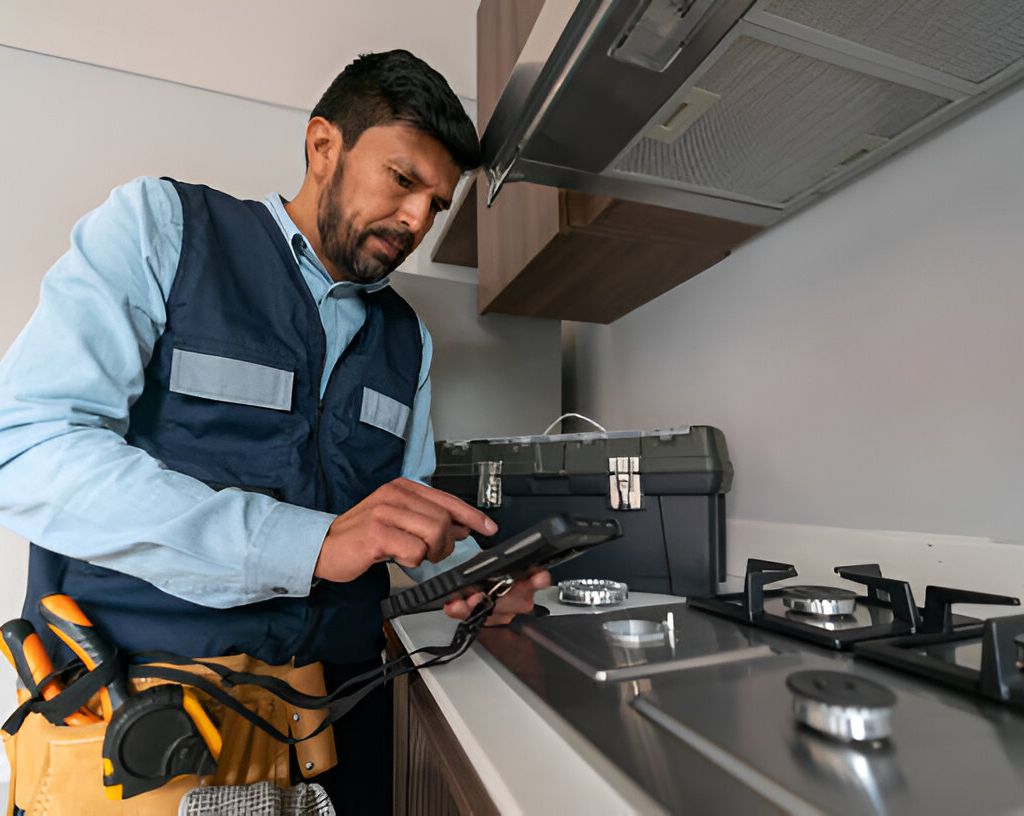
Navigating the regulatory landscape for landlords in the UK involves a meticulous understanding of the various certificates and documents required by law to ensure tenant safety and compliance with housing standards. From the essential Gas Safety Certificate to the often overlooked Legionella Risk Assessment, each document serves a critical role in maintaining the integrity and legality of rental agreements. As we explore these requirements, one must consider how changes in legislation could impact what is currently necessary and invite a broader discussion on the implications for landlords and tenants alike. What might future updates to these regulations look like, and how could they affect the responsibilities of a landlord, Let’s understand What Certificates Does a Landlord Need to Provide?
The Certificates Which UK Landlords Need
To ensure compliance with legal requirements, UK landlords must secure several essential certificates to safeguard both tenant safety and their liability.
Apart from the Gas Safety Certificate, which is mandatory for any property with gas appliances, landlords must also obtain an Electrical Installation Condition Report (EICR). This certificate, which needs renewal every five years, confirms that all electrical systems and installations are safe and up to standard, a critical measure preventing potential electrical hazards.
Another crucial document is the Energy Performance Certificate (EPC), which assesses the energy efficiency of a property, rating it from A (most efficient) to G (least efficient). An EPC must be provided to tenants before they move in, ensuring they are aware of the property’s energy profile and potential utility costs. This transparency supports tenant rights by enabling better-informed decisions regarding energy consumption.
Additionally, while not legally mandatory, conducting a Legionella Risk Assessment is recommended. This assessment ensures water systems are safe from Legionella bacteria, a serious health hazard.
Providing a copy of this assessment to tenants can further demonstrate a landlord’s commitment to upholding tenant safety and health, aligning with their responsibilities to ensure a habitable living environment.
Gas Safety Certificate
Landlords have numerous responsibilities to ensure their properties remain compliant with safety regulations, one of the most important being the acquisition of a Gas Safety Certificate. This certificate, essential for both legal compliance and tenant safety, is mandated to be renewed annually.

What Certificates Does a Landlord Need to Provide?
It involves thorough gas inspections performed by a certified Gas Safe registered engineer. These inspections assess all gas appliances and flues to ensure they are operating safely and efficiently.
The engineer’s findings are documented in what is commonly referred to as the CP12 Certificate. This document details each checked item, the tests performed, and any necessary recommendations or adjustments. It serves as a formal record that landlords must keep for at least two years.
Additionally, the law requires that landlords provide a copy of this certificate to their tenants within 28 days of the inspection or immediately upon the start of a new tenancy.
Ensuring the integrity of gas appliances through regular inspections is crucial. Negligence can lead to severe safety hazards, including gas leaks and carbon monoxide poisoning.
Therefore, adhering to these protocols not only complies with legal standards but significantly contributes to maintaining a safe living environment for tenants.
Electrical Safety Certificate
Transitioning from gas to electrical safety, the Electrical Safety Certificate serves as a pivotal document for landlords. This certificate, formally known as the Electrical Installation Condition Report (EICR), is a thorough assessment that ensures all electrical systems and installations meet the necessary safety standards.

Here’s why it’s crucial:
- Legal Requirement: Landlords must obtain an EICR to comply with safety regulations. Failure to provide a valid certificate can result in legal penalties.
- Tenant Safety: The primary purpose of electrical inspections is to protect tenants from potential hazards like electrical shocks or fires.
- Preventative Maintenance: Regular inspections help identify issues before they escalate into costly repairs. This proactive approach maintains the electrical system’s integrity and functionality.
- Insurance Implications: Many insurance policies require up-to-date safety certifications, including the EICR. Compliance with electrical safety standards can influence the terms and coverage of insurance policies.
Landlords must ensure that a qualified electrician conducts these inspections every five years or upon change of tenancy.
The documentation of these inspections contributes to a robust framework of safety compliance, safeguarding both the property and its occupants.
Energy Performance Certificate (EPC)
An Energy Performance Certificate (EPC) is an essential document that assesses the energy efficiency of a property, rating it from A (most efficient) to G (least efficient).

The EPC importance cannot be overstated as it provides prospective and current tenants with vital information regarding the energy consumption and cost implications of their rental choices. This certificate not only reflects the inherent energy characteristics of a property but also underscores a landlord’s compliance with statutory obligations.
Landlords must ensure that an EPC is available to tenants before signing a lease, as it is a legal requirement for all rental properties when they are marketed.
The certificate includes recommendations for improvements that could enhance the property’s energy efficiency, potentially leading to lower energy bills and a reduced environmental impact. These suggestions serve as a guide for landlords to make informed decisions about upgrades and renovations that can elevate the property’s market value and appeal.
The EPC remains valid for ten years, and its renewal should coincide with substantial modifications that could affect the property’s energy performance.
Proof of Deposit Protection
Ensuring security for both parties involved in a tenancy, proof of deposit protection is a crucial requirement for landlords to fulfill. It not only secures the tenant’s deposit against unlawful deductions but also reinforces deposit compliance, ensuring that landlords adhere to legal guidelines.
This documentation serves as proof verification that the deposit is safeguarded through a government-approved scheme, providing both parties with peace of mind and a clear reference in the event of disputes.
Here are key aspects involved in proof of deposit protection:
- Registration of Deposit: Immediately upon receiving a deposit, landlords must register it with a government-approved protection scheme, solidifying compliance and legitimacy.
- Certificate Issuance: Following registration, the scheme issues a certificate or proof of protection to the landlord, which must then be provided to the tenant within a specified timeframe, typically 30 days.
- Prescribed Information: Alongside the certificate, landlords are required to supply tenants with prescribed information, detailing the terms and conditions under which the deposit was held and protected.
- Annual Compliance Check: Landlords should perform annual checks to ensure that the deposit remains protected throughout the tenancy period, updating any changes in tenancy agreements or protection schemes.
These steps ensure transparency and protect all parties involved, reinforcing trust and professionalism in the landlord-tenant relationship.
Legionella Risk Assessment
Legionella Risk Assessment is a critical procedure that landlords should consider to maintain water system safety in rental properties. This assessment identifies and mitigates the risks of Legionella bacteria, which can cause Legionnaires’ disease—a severe form of pneumonia.
The process involves a thorough examination of all water systems within the property, including hot and cold water lines, tanks, showers, and faucets, to ensure they are not conducive to Legionella growth.
Implementing effective Legionella prevention measures is paramount. These include regularly flushing out systems, maintaining water temperatures outside the 20-45°C range in which Legionella thrives, and removing any redundant pipework that can harbor stagnant water.
It is also advisable to use water treatments, such as biocides, when necessary to control bacterial growth.
Legionella testing procedures should be carried out by qualified professionals who can sample water sources and test for the presence of bacteria. If Legionella is detected, immediate corrective actions must be taken to eradicate the bacteria and prevent future outbreaks.
Landlords should maintain records of all assessments and remedial actions to ensure ongoing compliance and safety, thus demonstrating diligence and responsibility in managing rental property health hazards.
Fire Safety Assessment
After addressing the risks associated with Legionella, it is equally important for landlords to prioritize fire safety assessments to protect both property and tenant well-being.

Ensuring compliance with fire safety regulations not only safeguards tenants but also helps to mitigate potential legal liabilities for landlords.
Here are essential components that should be covered in a fire safety assessment:
- Installation and Maintenance of Fire Safety Equipment: Ensure that all required fire safety equipment, including smoke alarms, fire extinguishers, and fire blankets, are installed properly and maintained regularly. This is crucial for early detection and control of fires.
- Clear and Accessible Escape Routes: Regularly inspect all escape routes and exits to ensure they are clear of obstructions and properly marked. This is vital for facilitating a quick and safe tenant evacuation in the event of a fire.
- Fire Safety Inspections and Drills: Conduct periodic inspections and fire drills to ensure everyone knows how to respond in case of an emergency. This helps in reinforcing safe evacuation procedures among tenants.
- Documentation and Compliance Records: Maintain up-to-date records of all fire safety inspections, equipment maintenance, and tenant training sessions. This documentation is important for legal compliance and can be crucial in insurance claims and legal matters.
Portable Appliance Testing
Portable Appliance Testing (PAT) is a crucial process for landlords to ensure the safety and compliance of electrical appliances within rental properties. This testing is not only a preventative measure against potential hazards but also a legal obligation in some regions to maintain safety compliance. The responsibility of carrying out PAT falls on the landlord, who must ensure that all portable electrical appliances provided to tenants are safe for use throughout their tenancy.

PAT involves a thorough check of all portable electrical items such as kettles, toasters, and microwaves to assess their safety. The process includes visual inspections and more detailed electronic tests. A qualified professional, typically a registered electrician, should perform the testing to guarantee a reliable examination of the appliance’s condition.
To highlight key aspects of PAT, consider the following table:
| Aspect | Details |
|---|---|
| Frequency | Advised annually or with change of tenancy |
| Professional | Must be conducted by a certified electrician |
| Documentation | Results should be recorded and retained |
Landlords must keep these records as proof of compliance and safety management, potentially avoiding legal repercussions and ensuring a safe living environment for tenants.
Conclusion
In conclusion, UK landlords are the custodians of tenant safety and legal compliance, tasked with providing a suite of critical certificates and documents. These documents serve as the pillars of residential security, ensuring that the foundations of rental accommodation are built on the bedrock of safety and efficiency. By adhering to these requirements, landlords not only uphold the law but also enhance the welfare and comfort of their tenants, fostering a harmonious living environment.
About the Author: LandlordCertificate
Related Posts
Get Social
Recent Posts
- Why Emergency Lighting Regulations Testing Is Essential for Every Property
- Asbestos Test: Protecting Your Building and Its Occupants
- EICR Report Validity: How Long Before You Need a New One?
- Fire Risk Assessment Report London: Essential Steps and Legal Requirements
- Reliable Gas Safety Inspection by Gas Safe Registered Engineers











